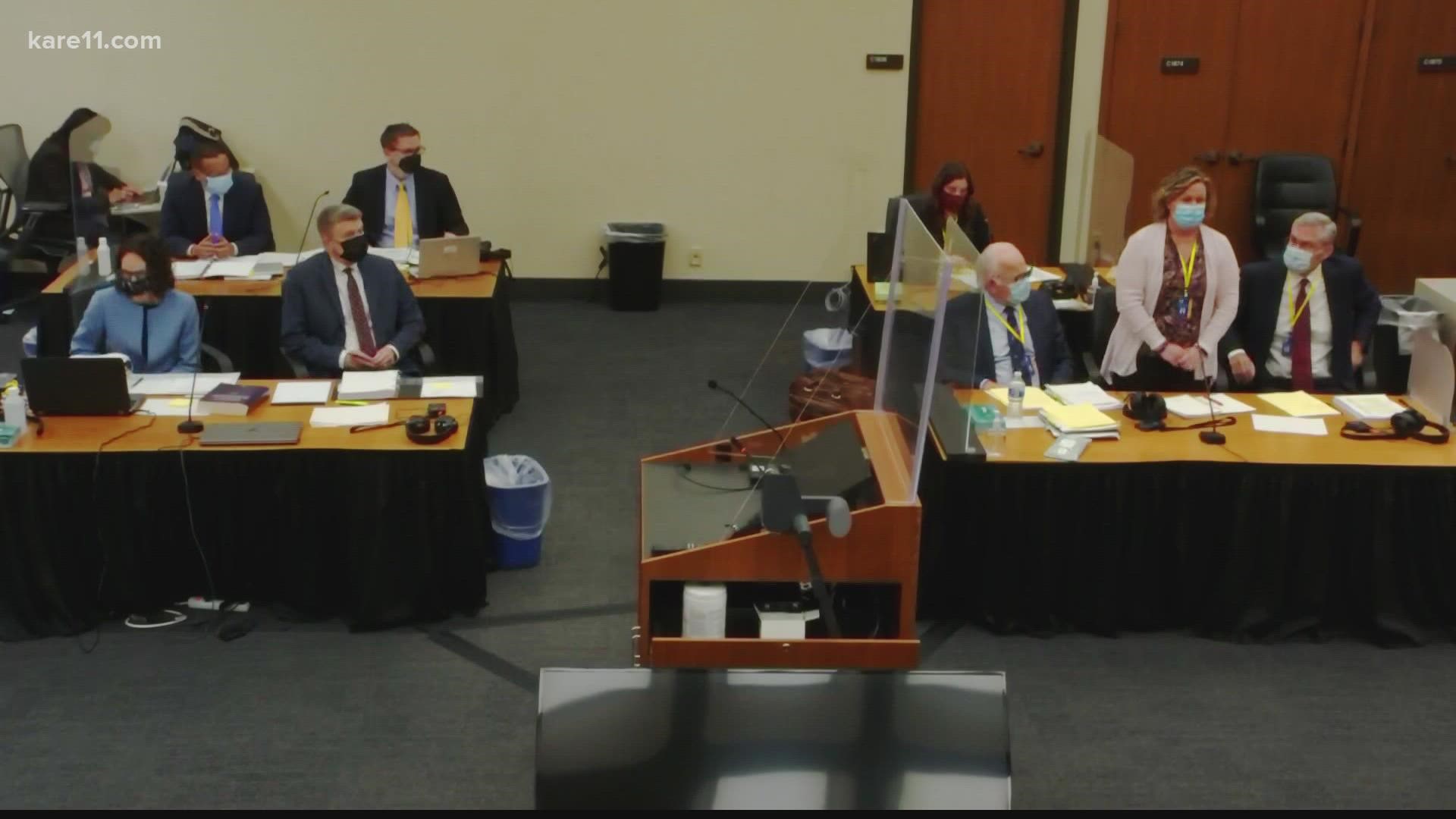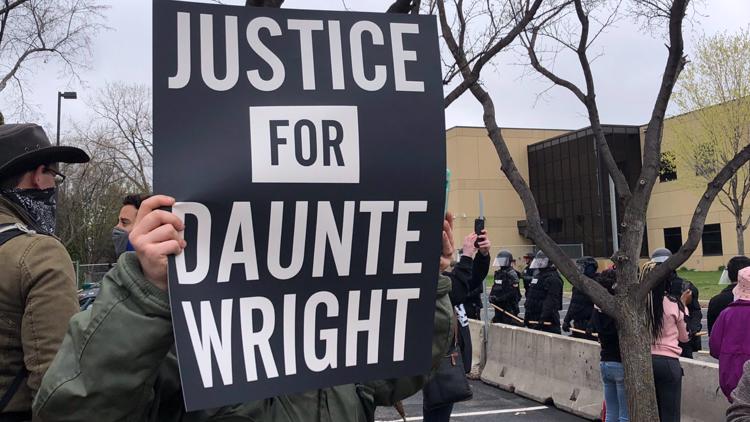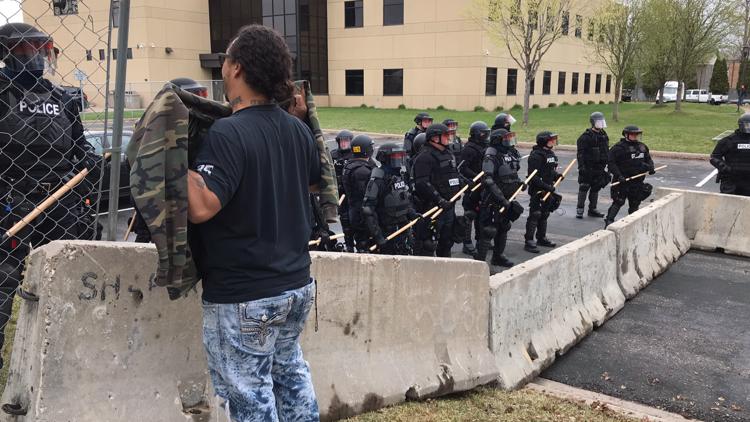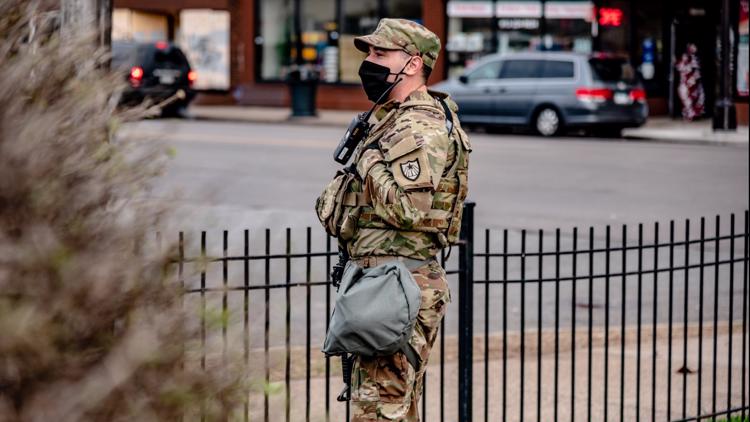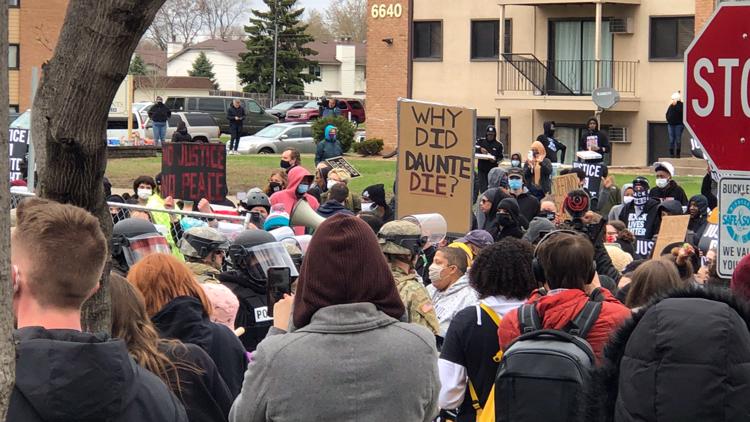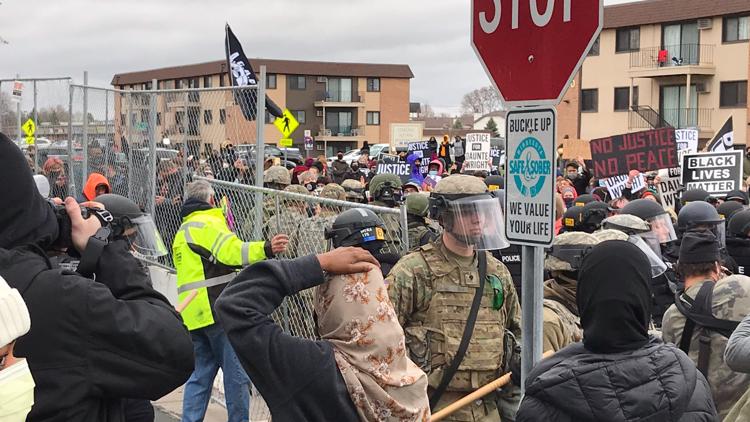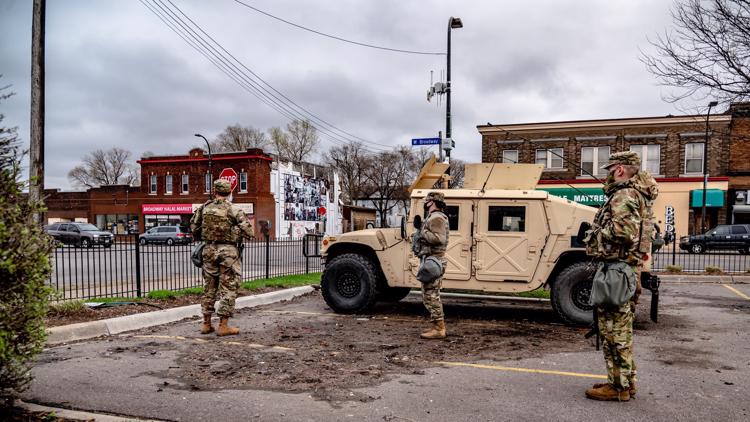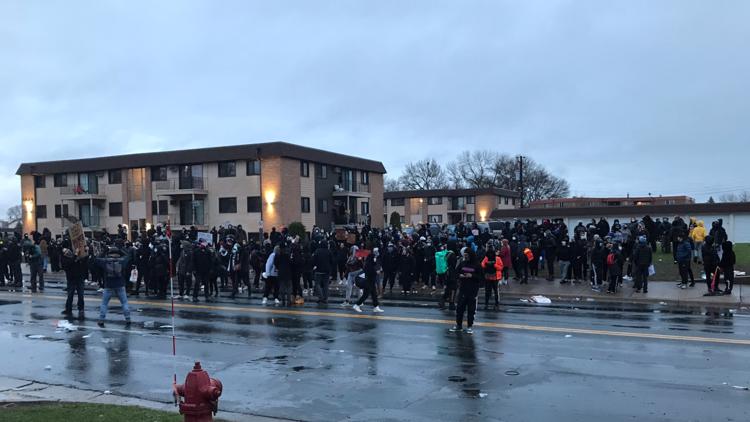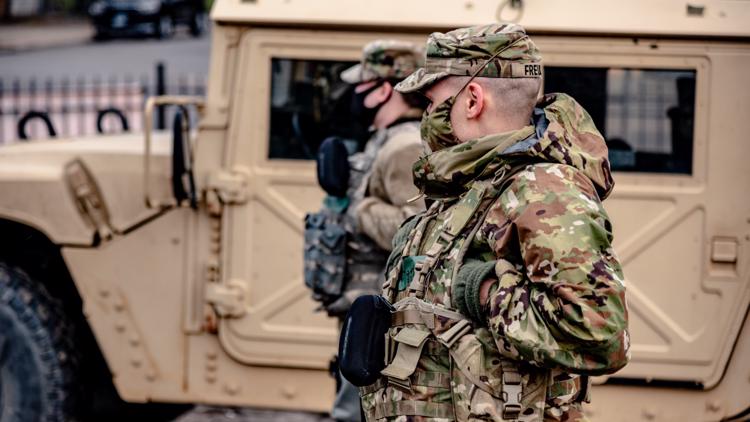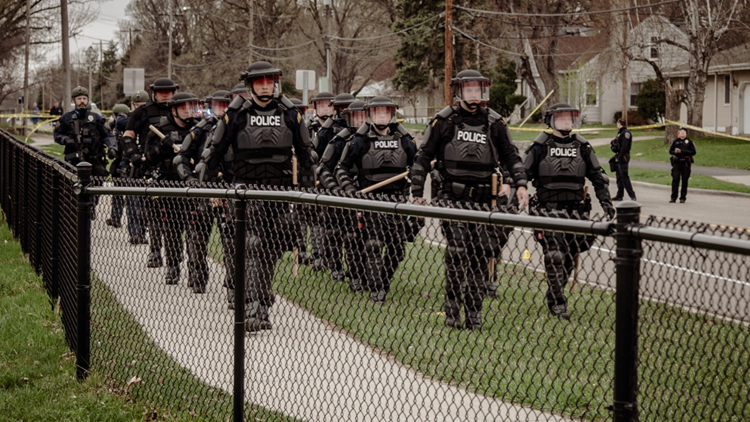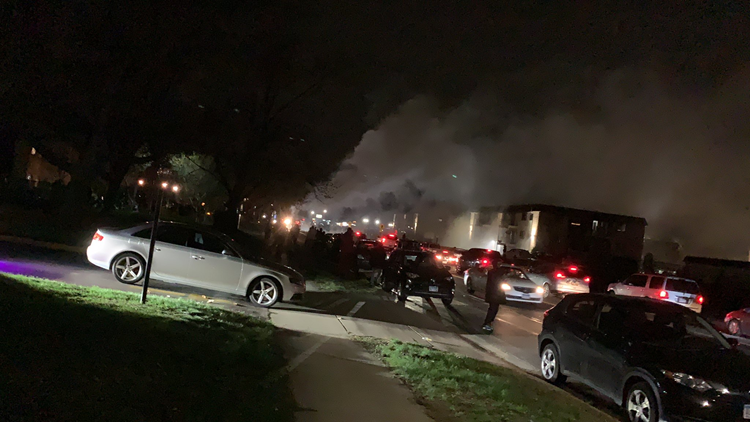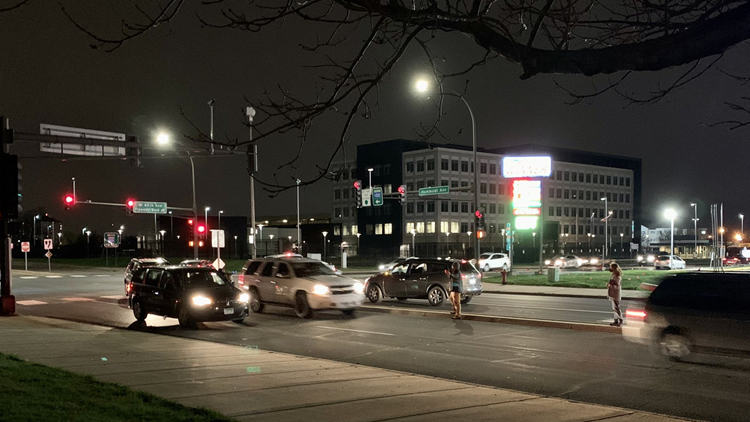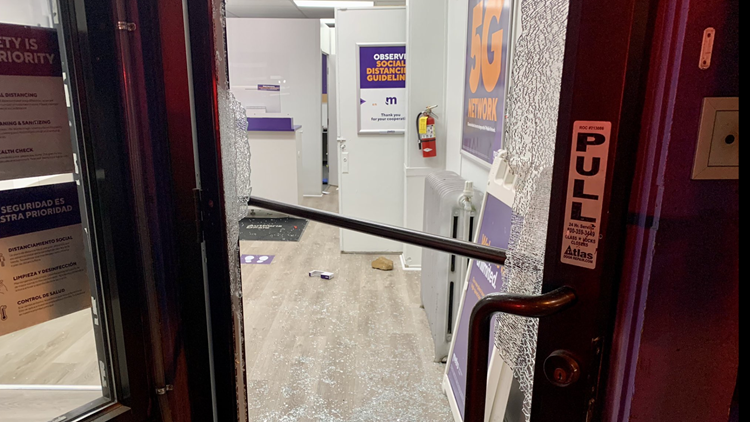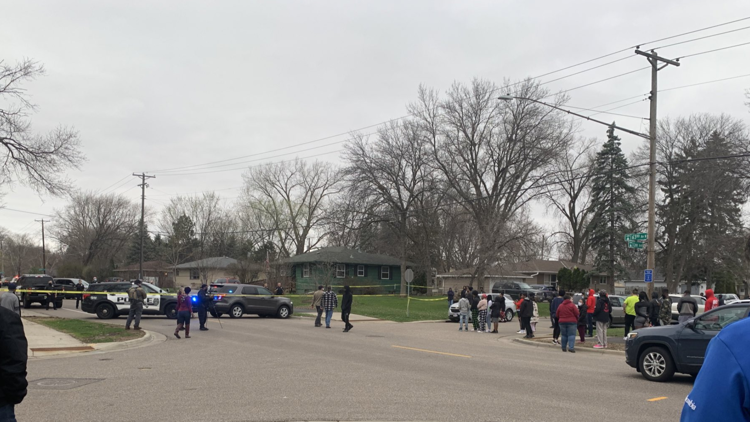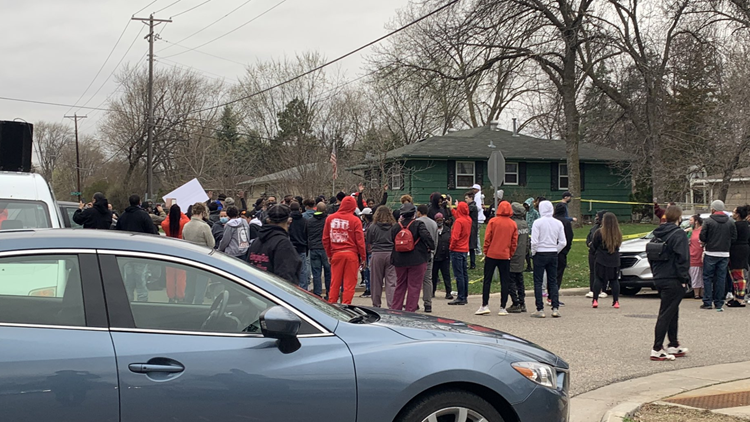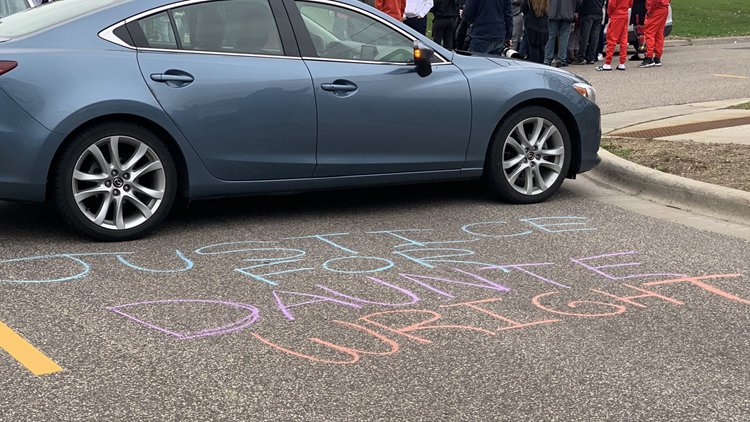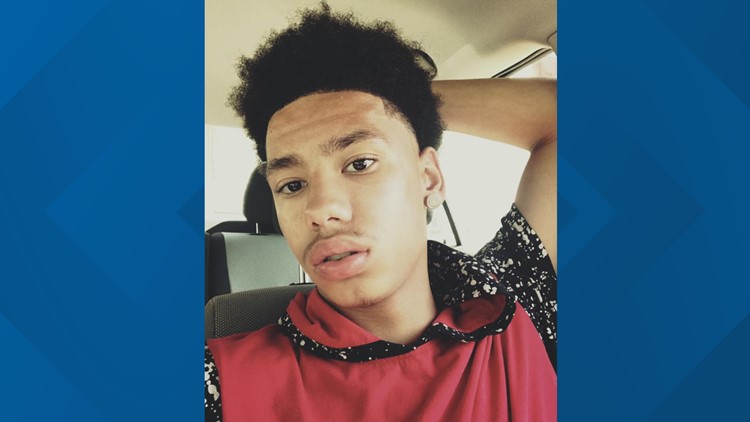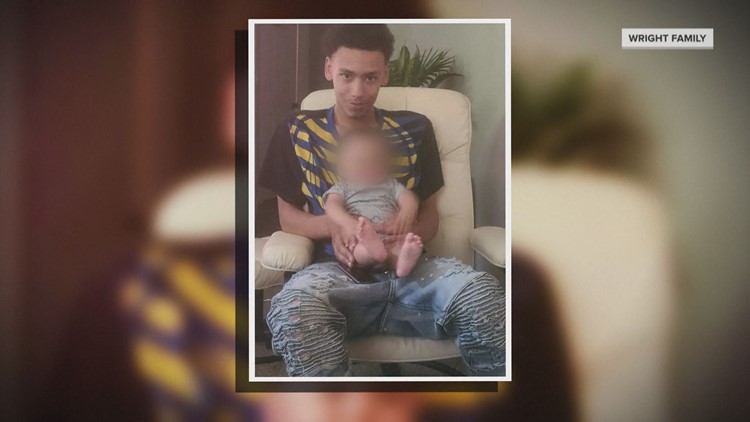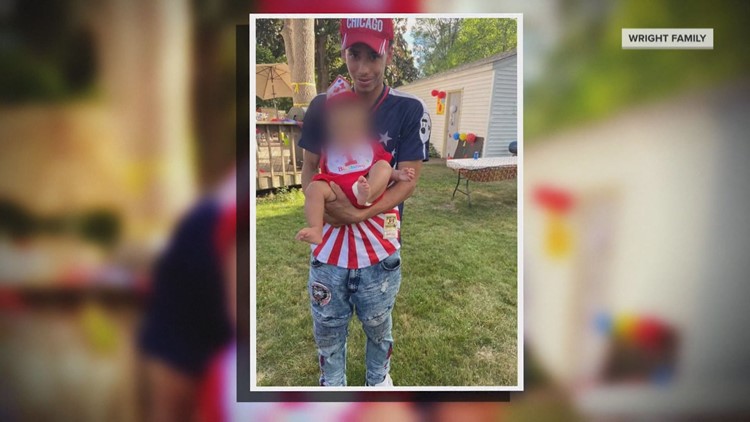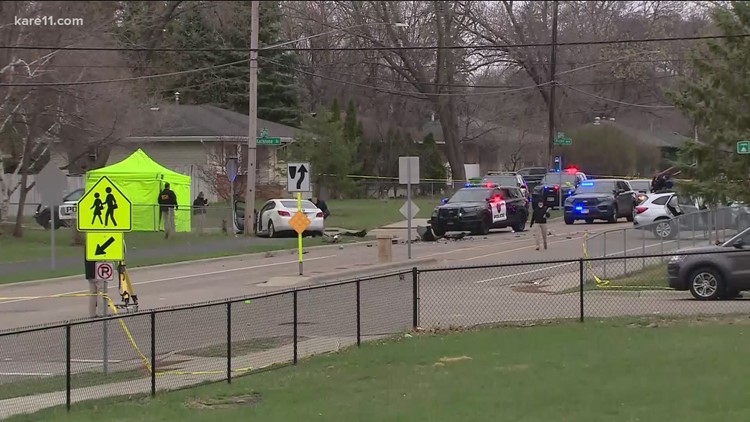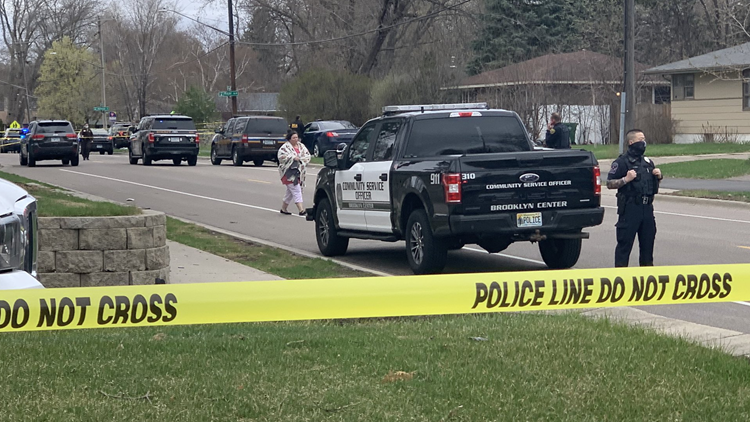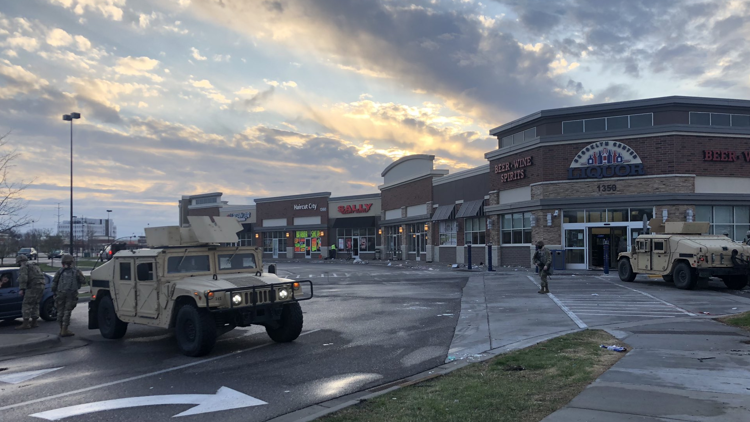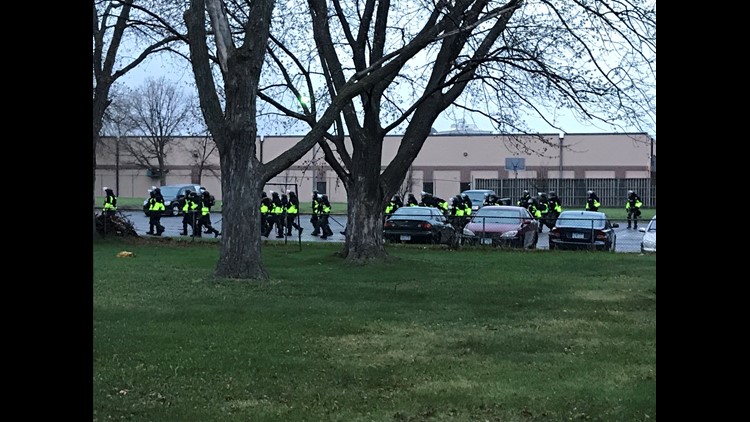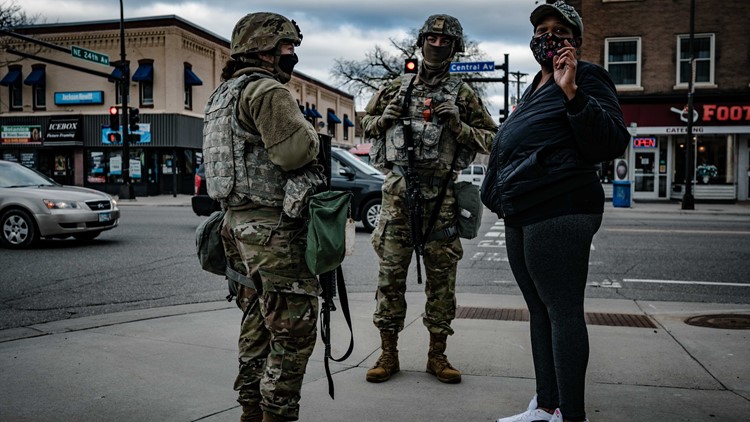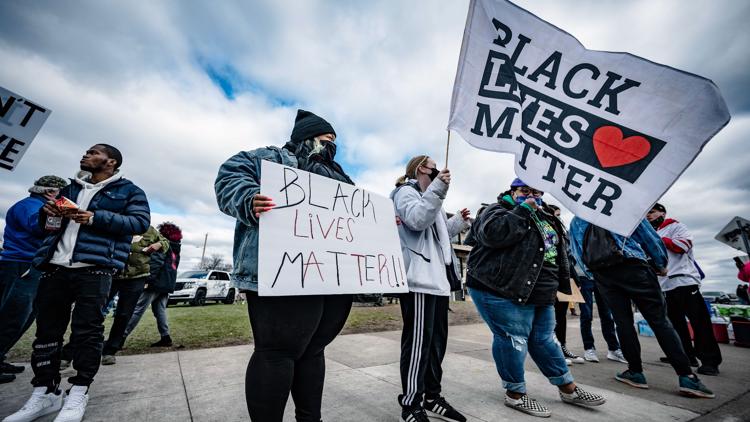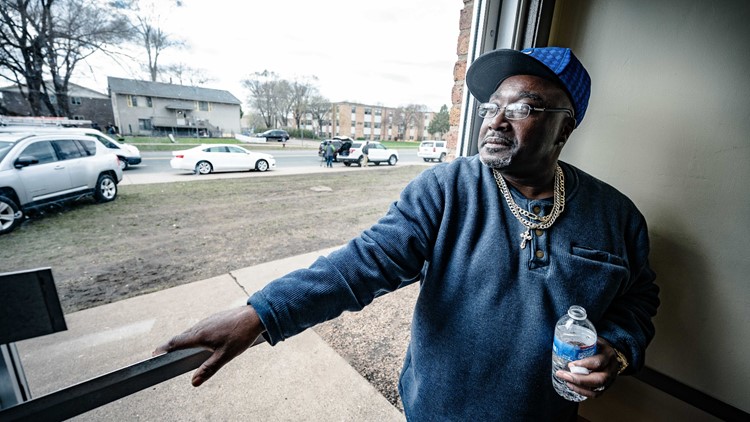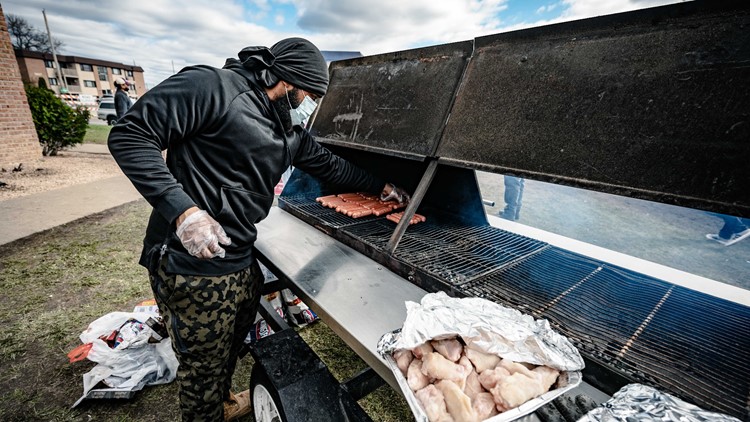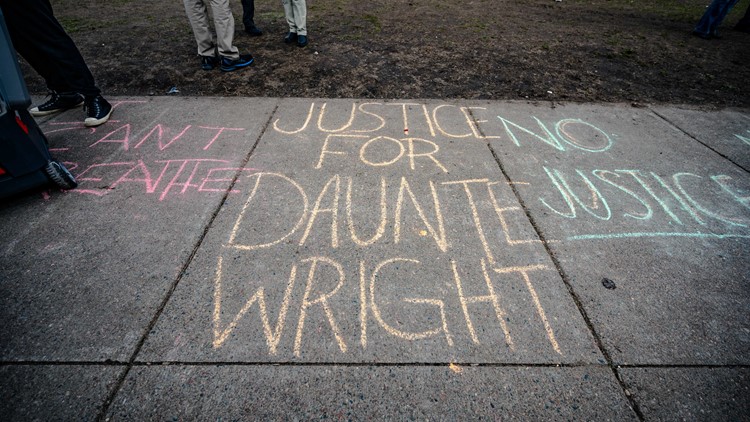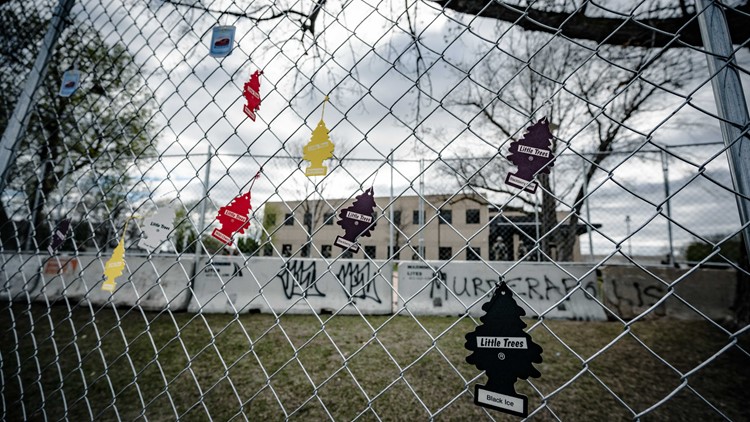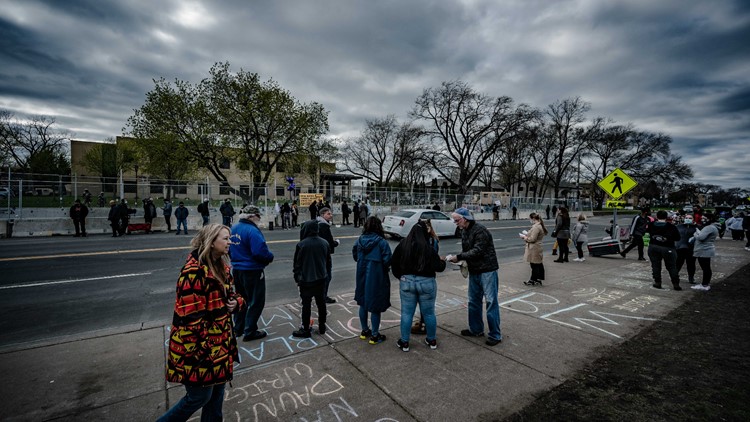BROOKLYN CENTER, Minn. —
- Four jurors selected Tuesday, two men and two women
- Seven potential jurors dismissed, the state and defense each used one peremptory strike
- Defense attorney Paul Engh says Kim Potter is expected to testify in her own defense
After the first day of jury selection in the case against former Brooklyn Center police officer Kim Potter, four jurors were selected to hear the trial. According to notes from a pool reporter inside the courtroom, two of the jurors are white men, one is a white woman and another is an Asian woman.
Court convened just after 9 a.m., with Hennepin County District Court Judge Regina Chu presiding. After Chu explained the process, jury selection was soon underway.
The first potential juror, a man who said he worked as an editor in the medical field, told defense attorneys he had “discussed” the Potter case with a few friends after the shooting took place, telling the courtroom he didn’t believe the criminal justice system works equally for everyone.
The panelist told prosecutors he doesn’t agree with defunding the police, but agreed he supports the work that good officers do.
He was the first juror seated for trial.
The next juror seated for trial, panelist six, was an elderly woman who told the court she was a retired teacher.
The woman said she would be able to act impartial, but was concerned about seeing graphic images and videos.
After more questioning from both the defense and prosecution, the woman was approved.
The third juror to be seated for the trial was panelist seven, a 29-year-old man who works as an operations manager for a retail company. He told Judge Chu that he had seen the video of Daunte Wright being shot several times, but is open to receiving new information and seeing things “in a new light.” He expressed that he is slightly distrustful of police officers, but said he would still contact them if he needed help.
After answering “yes” to the question of whether he could presume Potter’s innocence, he was passed and seated on the jury.
The fourth and final juror to be seated on the first day of selection, panelist 11, told the courtroom she could hear bullets from inside her home during last year’s unrest. She said she didn’t believe a specific group was responsible for the violence, and that police are there to keep order.
She told the defense she is a “rule follower” and believes she can be fair and impartial while serving as a juror. The prosecution and defense both approved her for a seat on the jury.
The state and defense each used one peremptory strike, leaving the prosecution with two and the defense team with four.
The second day of jury selection will continue Wednesday at 9 a.m. Ten more jurors need to be seated before opening statements can commence.
4:30 p.m.
Juror number 15, a woman, was the final potential juror interviewed on Tuesday. She told the courtroom that in 2018 she volunteered for Attorney General Keith Ellison’s campaign for about a month, but said the work was more for political experience and less about the candidate himself. Ellison's office is representing the state in this case, and the juror said her work with his campaign wouldn't impact her opinion.
In her jury questionnaire, juror 15 called Kim Potter’s actions "careless," but said she didn’t necessarily think they were malicious in intent. When defense attorney Paul Engh followed up and asked, "did it sort of seem like an accident to you?" she answered “Yes.” Judge Chu stopped Engh and did a sidebar with audio cut.
The juror also said she had visited the memorial for George Floyd at 38th and Chicago and had participated in one protest following Floyd’s death, but maintained to the defense that Potter’s and Wright’s races in this case wouldn’t affect her decision making.
The defense used its first peremptory strike on juror 15. They have four left and the prosecution has two.
4:25 p.m.
Juror 14, a full-time college student, told the courtroom serving on the jury would interfere with his classes and final exams. He also told the court he believed his political opinions would make him biased in the case. Judge Regina Chu dismissed juror 14 without questioning from the defense or state.
3:50 p.m.
Juror number 11 is a woman who said in her pretrial questionnaire that a close friend of hers was the victim of a fatal stabbing in Minneapolis five years ago. When asked by Judge Regina Chu if she thought that experience would impact her ability to sit on this jury, the panelist said she could be fair and impartial and listen to all evidence.
Potential juror 11, who works in Minneapolis, told defense attorney Earl Gray that she is a “rule follower” and would serve on the jury if selected. The defense passed through juror 11.
The juror told state attorney Matthew Frank that she could hear bullets from inside her home during last year’s unrest in Minneapolis, but didn’t associate any specific group with the violence. She also said she believes police are there to keep order.
She told Frank it’s possible to have respect for law enforcement and still hear evidence about an officer’s conduct in the field while serving as a juror. Juror 11 said she could be a fair and impartial juror for both sides of the trial, and the defense also passed her through. Juror 11 is the fourth person to be seated for Kim Potter’s trial.
3 p.m.
Of the first seven potential jurors interviewed Tuesday, three were selected for the jury and four were dismissed.
Juror number 10, the first person to be questioned in the second batch of panelists Tuesday afternoon, candidly told the court that he would be uncomfortable serving on the jury because of his wife’s ongoing health problems and concern for his safety. According to notes from a pool reporter in the courtroom, juror number 10 appeared to be Black.
After a brief series of questions from the defense, juror number 10 was dismissed by Judge Regina Chu.
2:12 p.m.
When questioning potential juror number nine, both the defense and state doubled down on whether or not the panelist would be able to set aside his biases heading into the trial.
When questioned by defense attorney Paul Engh, the juror said he didn’t understand how a seasoned officer could mistake their Taser for a gun.
During questioning by the state, the juror said he had biases but believed he’d be able to listen to both sides before making a decision. Judge Regina Chu dismissed the juror for cause based on the admittance of bias.
1:30 p.m.
Potential juror number eight was a retired fire captain who previously lived in Minneapolis. The juror said he hadn’t paid much attention to the case, but said multiple times he considered himself to be an open-minded person who would listen and take all evidence into consideration.
The juror, who appeared to be a white middle-aged man based on pool reporter notes, told defense attorney Matthew Frank that despite the relationship he had with police officers while working as a fire captain, he’d be capable of putting aside any previously held opinions and be an impartial listener. Potential juror eight said he had a good relationship with Minneapolis police while working as a fire captain and also told the courtroom that a family member is a police officer.
When asked about Black Lives Matter, the juror explained that he believes the group could do more to help curb inner city gun violence, but said he doesn’t think any particular group was responsible for recent violence or unrest in the Twin Cities.
“I want to be fair,” the juror told the court. Frank also asked if the juror would be concerned about how a verdict would be received by police officers and firefighters. The juror said he wasn’t concerned about the reaction to a verdict. “Whatever the jury decides is going to be fair. That's how I look at it. Fair and just, that’s what we want.”
The state initially said they passed juror number eight, but after a side conversation used a peremptory strike to have the potential panelist dismissed.
12 p.m.
Before taking a recess for lunch, a third juror was seated for the trial of Kim Potter.
Juror number seven, a 29-year-old man, is an operations manager for a retail company.
The juror told Judge Regina Chu that he had seen the video of Daunte Wright being shot several times, but is open to receiving new information and seeing things “in a new light.”
The juror told the courtroom that he underwent firearms training when he was between 12 and 14 years old, and owned a stun gun several years ago while traveling with a rock band, but currently does not own one.
The juror expressed he is slightly distrustful of police officers, but said he would still contact the police if he needed help.
Defense attorney Earl Gray asked panelist number seven if he’d be able to presume Kim Potter’s innocence if chosen to serve as a juror, to which he answered “yes.”
Both the defense and prosecution passed through juror number seven.
11:15 a.m.
Potential juror number six is a woman who told the courtroom she is a retired teacher. Notes from a pool reporter in the courtroom say the juror is elderly and white. When asked separately by the judge, prosecution and defense, the juror reiterated that she would be able to be an impartial juror and take the evidence presented by both sides into consideration. However, she said she’s concerned about seeing graphic images and videos during the trial. The panelist also expressed anti-gun feelings.
During his line of questioning, defense attorney Paul Engh said Kim Potter is expected to testify in her own defense during the trial, and asked the juror if she’d be willing to wait and hear what Potter has to say. The potential juror said she would be.
The defense approved the juror.
Prosecutor for the state Matthew Frank said the scope of the case will go beyond the 12 seconds where Potter shot Daunte Wright, which was captured on police body camera video. Frank asked the juror if she’d be able and willing to consider all evidence presented in the case, including Potter’s police officer training. She answered yes.
The defense also passed through panelist number six, making her the second juror to be seated for the trial.
10:18 a.m.
Potential juror number five, who appeared to be a white man according to notes from a pool reporter in the courtroom, said that he has a positive view of Potter and negative view of Wright.
The juror told Judge Chu that he is familiar with the case after keeping up with media coverage.
“I read a lot of information about what happened and other things that happened prior to the incident before being notified about this summons. I read the news and I follow a lot of what happens and what's going on,” he said.
When asked by the judge if he could act as an impartial juror, he said “I’ll do my best.”
The juror also told the courtroom that he is a father and feels strongly about setting a good example for his children by doing his civic duty. He expressed that he is a “rule follower,” and doesn't feel safe in Minneapolis. He told the prosecution he’s frustrated that some people aren’t held accountable for their crimes or actions, and believes the law is applied differently to different people. The defense passed, or approved juror number five.
Prosecutor Matthew Frank asked about an answer on his questionnaire where the juror said he considers Black Lives Matter to be a Marxist, communist organization. The juror reiterated his belief in the courtroom, saying “that’s (BLM’s) primary goal, is to convert this country into that.”
After a lengthy conversation between prosecutors, the defense and Judge Chu, jury panel member number five was struck "for cause." Neither side has used a peremptory challenge yet.
10 a.m.
Potential juror number four, a woman who told the courtroom that she is a mother of three, said in her questionnaire that she had a negative impression of Kim Potter and a neutral opinion of Daunte Wright.
While being questioned by Judge Chu, the juror, who appeared to be Asian based on pool reporter notes, said she used to live in Brooklyn Center and was worried about unrest in the area.
When asked by Judge Chu if she supports defunding the police, the juror said she had no opinion. “I believe police officers should be held accountable for what they do on duty,” the juror told the courtroom.
Defense attorney Earl Gray asked the juror about one of her questionnaire answers, where when asked if she wanted to serve as a juror in this case, answered “it’s an interesting case and I'd love to see how a police officer is convicted when committing a crime on duty, or has made a mistake with severe consequences.”
When asked by Gray if that was still her answer, the juror said yes.
After a lengthy sidebar conference panelist number four was excused from serving on the jury.
9:40 a.m.
The first potential juror, panelist number two, said on his questionnaire that he viewed both Kim Potter and Daunte Wright as "neutral."
Defense attorneys questioned the potential juror first. The male panelist said he had "discussed" the Potter case with a couple of friends in April after the shooting, and told the courtroom that he didn't believe the criminal justice system works equally for everyone.
During questioning, the panelist revealed that he has a B.A. and Masters in English and works as an editor in neurology dealing with medical evidence. According to notes from a pool reporter in the courtroom, the juror is a white man.
When asked about his opinions toward police by state attorney Matthew Frank, the panelist said he doesn't agree with the message or approach to defunding the police, but agreed he supports the work that good police officers do.
Following Frank's questioning, panelist number two was seated for the trial.
9 a.m.
Jury selection in the trial of former Brooklyn Center police officer began shortly after 9 a.m., with Hennepin County District Court Judge Regina Chu presiding.
Judge Chu read descriptions of the charges against Potter, first and second-degree manslaughter, to the jury.
Chu also introduced the defense and prosecution teams, as well as members of the courtroom staff.
"Our sole purpose and obligation is to ensure jurors who decide this case are neutral, open minded and fair," Chu told the panel of potential jurors while giving them preliminary instructions.
The judge explained the jury selection (voir dire) process, and how they would be questioned in both a group and individual setting. She asked the panel a number of questions, including whether health concerns or an inability to presume Potter is innocent until proven guilty, would prevent them from serving on the jury.
"By showing up today and proving you are willing to serve, you are our heroes," Chu told the panel of potential jurors. "Our criminal justice system could not work without good citizens like you."
Case history
In April 2021, police were attempting to take Daunte Wright, a 20-year-old Black man, into custody after pulling him over for expired tabs when Potter, who is white, drew her gun and fatally shot him in the chest. The incident was captured on police body cameras. Potter later claimed she meant to use her Taser instead of her firearm.
Potter faces both first and second-degree manslaughter charges in Wright's death. She was initially charged only with second-degree manslaughter, which requires a finding that she acted with “culpable negligence” in Wright’s death.
Prosecutors later added a first-degree manslaughter count against Potter, and on Oct. 27 Judge Regina Chu decided to allow the charge. You can read more about the case here.
This trial will mark just the second time the state has allowed cameras inside the courtroom for the broadcast a criminal trial. The first was earlier this year, for Chauvin's murder trial.
KARE 11 will live stream gavel-to-gavel coverage on kare11.com, the KARE 11 app and KARE 11 YouTube page.

